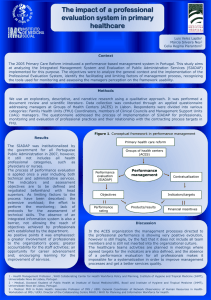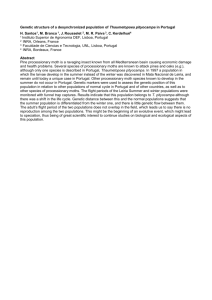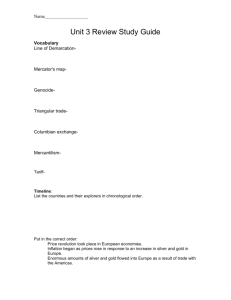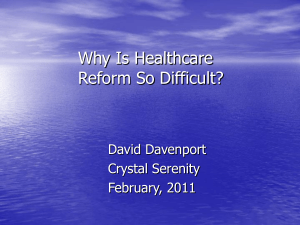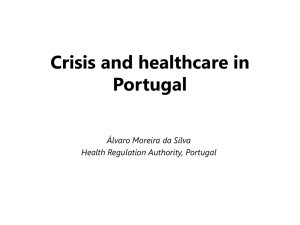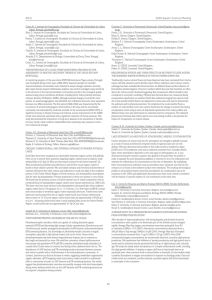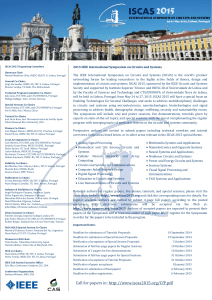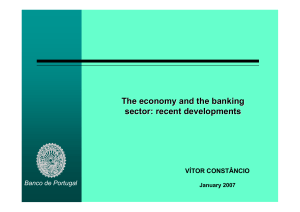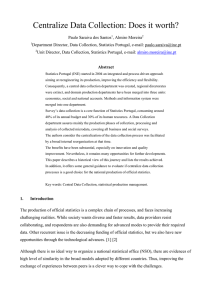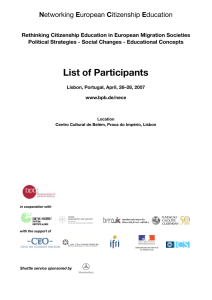Performance evaluation and management contracts in primary
advertisement
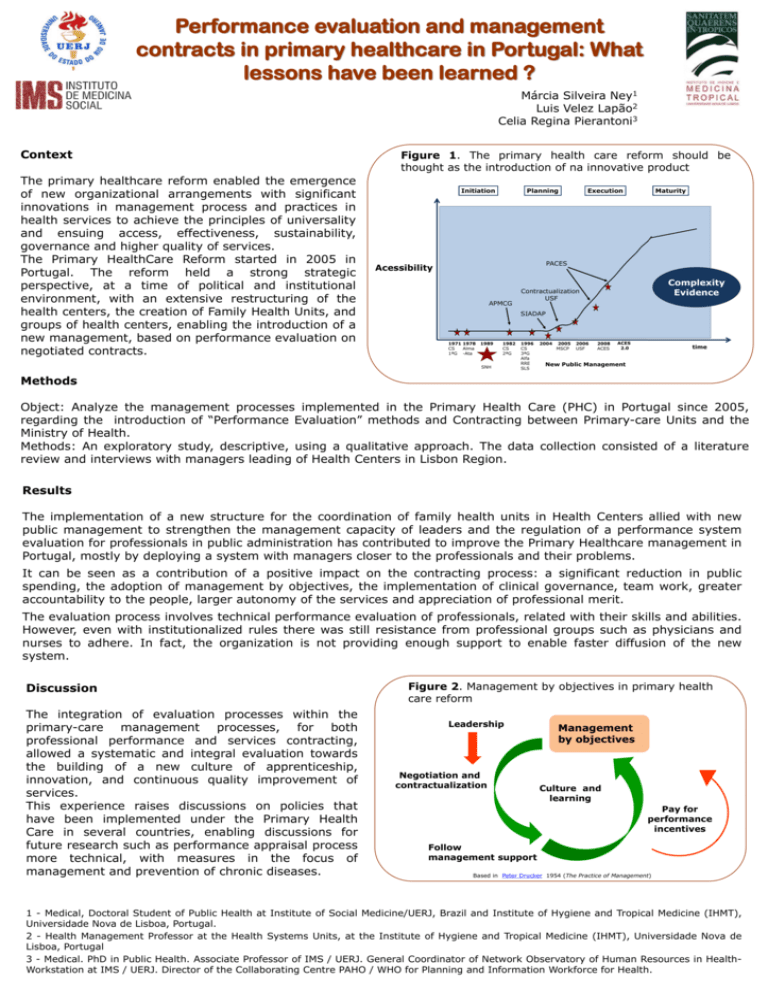
Performance evaluation and management contracts in primary healthcare in Portugal: What lessons have been learned ? Márcia Silveira Ney1 Luis Velez Lapão2 Celia Regina Pierantoni3 Context The primary healthcare reform enabled the emergence of new organizational arrangements with significant innovations in management process and practices in health services to achieve the principles of universality and ensuing access, effectiveness, sustainability, governance and higher quality of services. The Primary HealthCare Reform started in 2005 in Portugal. The reform held a strong strategic perspective, at a time of political and institutional environment, with an extensive restructuring of the health centers, the creation of Family Health Units, and groups of health centers, enabling the introduction of a new management, based on performance evaluation on negotiated contracts. Figure 1. The primary health care reform should be thought as the introduction of na innovative product Initiation Planning Execution Maturity PACES Acessibility APMCG Complexity Evidence Contractualization USF SIADAP 1971 1978 CS Alma 1ªG -Ata 1989 1982 CS 2ªG SNH 1996 CS 3ªG Alfa RRE SLS 2004 2005 MSCP 2006 USF 2008 ACES ACES 2.0 time New Public Management Methods Object: Analyze the management processes implemented in the Primary Health Care (PHC) in Portugal since 2005, regarding the introduction of “Performance Evaluation” methods and Contracting between Primary-care Units and the Ministry of Health. Methods: An exploratory study, descriptive, using a qualitative approach. The data collection consisted of a literature review and interviews with managers leading of Health Centers in Lisbon Region. Results The implementation of a new structure for the coordination of family health units in Health Centers allied with new public management to strengthen the management capacity of leaders and the regulation of a performance system evaluation for professionals in public administration has contributed to improve the Primary Healthcare management in Portugal, mostly by deploying a system with managers closer to the professionals and their problems. It can be seen as a contribution of a positive impact on the contracting process: a significant reduction in public spending, the adoption of management by objectives, the implementation of clinical governance, team work, greater accountability to the people, larger autonomy of the services and appreciation of professional merit. The evaluation process involves technical performance evaluation of professionals, related with their skills and abilities. However, even with institutionalized rules there was still resistance from professional groups such as physicians and nurses to adhere. In fact, the organization is not providing enough support to enable faster diffusion of the new system. Discussion The integration of evaluation processes within the primary-care management processes, for both professional performance and services contracting, allowed a systematic and integral evaluation towards the building of a new culture of apprenticeship, innovation, and continuous quality improvement of services. This experience raises discussions on policies that have been implemented under the Primary Health Care in several countries, enabling discussions for future research such as performance appraisal process more technical, with measures in the focus of management and prevention of chronic diseases. Figure 2. Management by objectives in primary health care reform Leadership Negotiation and contractualization Management by objectives Culture and learning Pay for performance incentives Follow management support Based in Peter Drucker 1954 (The Practice of Management) 1 - Medical, Doctoral Student of Public Health at Institute of Social Medicine/UERJ, Brazil and Institute of Hygiene and Tropical Medicine (IHMT), Universidade Nova de Lisboa, Portugal. 2 - Health Management Professor at the Health Systems Units, at the Institute of Hygiene and Tropical Medicine (IHMT), Universidade Nova de Lisboa, Portugal 3 - Medical. PhD in Public Health. Associate Professor of IMS / UERJ. General Coordinator of Network Observatory of Human Resources in HealthWorkstation at IMS / UERJ. Director of the Collaborating Centre PAHO / WHO for Planning and Information Workforce for Health.
